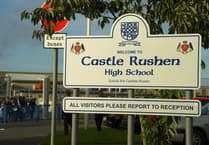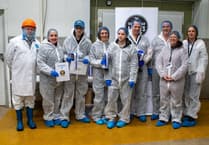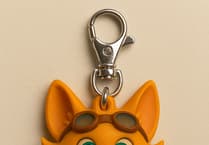BBC Radio 4 has turned its attention to the Isle of Man, exploring how a growing movement to produce more of the island’s own food is reshaping businesses, communities and even government policy.
In a programme broadcast on Friday morning, presenter Jaega Wise visited producers, farmers and chefs to ask why the island’s approach matters, and what challenges lie ahead.
The Isle of Man Government pledged a decade ago to strengthen local food security.
Yet today only around 6% of food sold on the island is Manx.
BBC broadcaster and author, Jaega asked: ‘Where does the rest come from? And how are food businesses here managing to grow while producers everywhere face rising costs, climate pressures and changing shopping habits?’
Among her first stops was Noa Bakehouse in Douglas, where operations manager Chris Waller explained how the bakery, which began in 2013, has become ‘a mini industry of our own’ employing 60 people and baking 600 loaves a day.
He said food security was at the heart of their ethos: ‘If we’re not using local and keeping flour milling alive, we become reliant on a system that we don’t know what the future holds.’
The programme also highlighted the island’s seafood industry.
Jack Emmerson, Sea Fisheries Policy Manager at DEFA, described how co-management with fishermen has helped protect scallop stocks, while Dr David Beard of the Manx Fish Producers Organisation said tougher quotas had been ‘very challenging’ but were now paying off.
Manx National Farmers’ Union secretary Sarah Comish once again warned that access to markets remains a barrier: ‘Only 6% of food retailing on the island is locally produced.
‘We’ve got to start supporting local produce more.’
Education Minister Daphne Caine confirmed schools have quadruple the use of Manx produce in meals, cutting ultra-processed food to just 5%, a decision that’s been met with some criticism last week.
Wise concluded the Isle of Man may be small, but its food story ‘could matter far beyond its shores.’
.jpeg?width=455)



